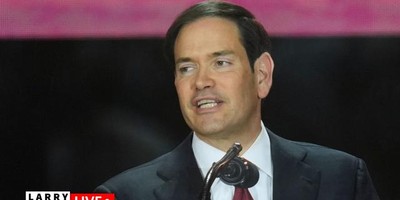The “Grand Bargain” refers to a yet-to-be-realized agreement between Republicans and Democrats to put the federal government’s finances on a more stable trajectory in which both sides capitulate on long-standing policy positions. For Republicans, that means agreeing to more tax revenues. For Democrats, it means agreeing to reduction in entitlement program benefits.
(Ignore the new “grand bargain” proposed by the president on Tuesday, which called for meager corporate tax reform in exchange for blowing more taxpayer money on the administration’s favorite bad ideas. The offering was a DOA political stunt.)
The “Grand Bargain”—as originally understood—hasn’t happened and it’s not going to anytime soon. A group of eight Republican senators has reportedly been discussing a possible deal with the White House, but similar efforts in the past have gone nowhere and the political landscape remains unchanged: Republicans control the House; Democrats control the Senate and White House. With the 2014 elections looming on the horizon, the House isn’t going to raise taxes and the Senate will continue to be in no hurry to touch entitlements.
It’s already clear that Congress will once again not finish a budget for the upcoming fiscal year, which begins on October 1st. That means a continuing resolution to keep the government open. And shortly after, the government will no longer be able to stay below the statutory debt limit. Some conservatives have raised the idea of refusing to keep the government open/increase the debt limit unless Obamacare is repealed. That would be nice, but a lot of fellow Republicans have already thrown that idea under the bus. There’s pressure on the House leadership to go with that strategy, but it’s hard to imagine that Boehner & Co. will want to take a hostage that it isn’t prepared to shoot given that the president won’t sign legislation that defunds his signature boondoggle achievement.
If there is going to be a “bargain,” it will involve sequestration. Sequestration, which largely affects discretionary spending, is increasingly frustrating spenders on both sides of the aisle. This week, the House Republican leadership was reportedly forced to pull the transportation-housing appropriations bill because the votes weren’t there to pass it. Apparently, too many Republicans were unhappy with the bill’s volume of spending reductions. On the other hand, Senate Republicans killed that chamber’s version of the bill because it spent too much. That suggests the possibility of a sufficient number of Republicans agreeing to lessen—but not eliminate—sequestration’s hit on discretionary spending. Democrats would probably accept that in exchange for keeping the government open, continuing to run up debt, and allowing Obamacare to start doing some real damage in January.
Anyhow, that’s just my guess based on what I know and what has happened in the past with this set of characters.
Will the continuing resolution fund the government for the entire year or will there eventually be an omnibus spending bill? If sequestration is “adjusted,” what will the breakdown be between defense and non-defense spending? Could gimmicky cuts to mandatory spending be used to offset increased discretionary spending above sequestration?
We’ll find out. All I know is that I would bet a lot of money that we’ll see more of the same nonsense next year. Indeed, being a federal budget analyst has become like being the character Phil in the movie Groundhog Day.

























Join the conversation as a VIP Member